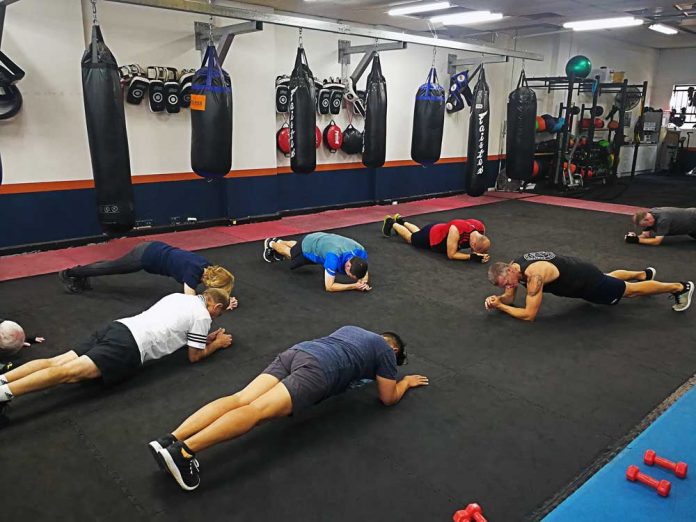ALEXANDRIA: A fitness class is proving beneficial for people with Parkinson’s disease, helping to improve their memory and ability to walk.
No Quarter Boxing and Martial Arts in Alexandria runs a specialised training class called Parkinson’s Boxing.
The class is endorsed by Parkinson’s New South Wales and developed by Steve Schimer, one of the directors of Parkinson’s New South Wales, in coordination with No Quarter.
“The main idea is that to have an effect on your Parkinson’s, and slow down the advance of your Parkinson’s, you need to work quite hard; you need intense workout sessions,” Mr Schimer said.
This type of boxing began in America in 2006 and was designed to attack Parkinson’s at its vulnerable neurological points.
The symptoms of Parkinson’s are mainly caused by a loss of nerve cells that produce dopamine, which helps transmit signals from one cell to another in the brain.
As a result, medication needs to be taken to bring dopamine back into the brain.
However, research has shown that high intensity training can help the brain to become more efficient at using dopamine.
“The fitter you are, the more efficient your brain becomes at using the dopamine,” Mr Schimer said.
“The aim is to increase your fitness as much as you can, that makes you more efficient at using the dopamine, which means you don’t have to bring in as much external dopamine into the brain and rely on the medication that you take to get the signals to pass from one cell to the next.”
His class has seen people coming in with difficulties walking and, after a few sessions, being able to walk without aid. People have also seen improvements to their memory and the way they speak.
Twelve years ago, Mr Schimer was diagnosed with Young Onset Parkinson’s disease at the age of 40 and he has been boxing for about five years.
“I went from taking medication levels of 250mg of Levodopa every three to four hours, which is quite high, and I now take about 50mg of Levodopa, so it’s a massive difference,” he said.
“And that changed my life completely. So, I was struggling to speak properly, I was struggling to keep my balance, I was falling over all the time, all sorts of things were going wrong, and that all got pushed backwards.”
His class has received positive feedback from clients.
“A lot of them say that I tend to push them harder than any other exercise doctor … They notice that a lot of the things that they struggle with become a little bit easier,” Mr Schimer said.
“Their balance improves, their general movement and how they feel after they exercises is better.”





